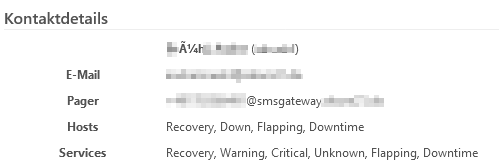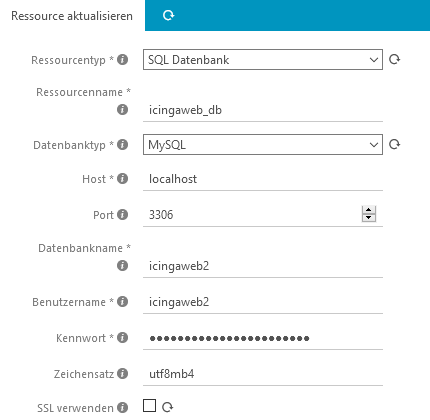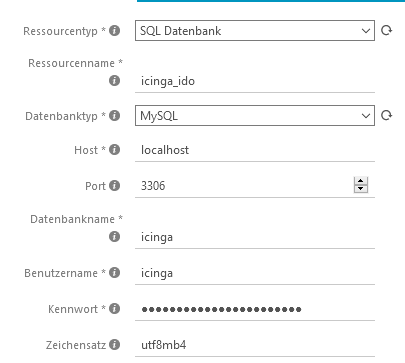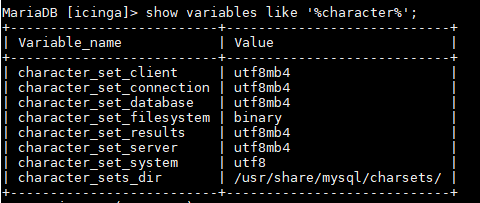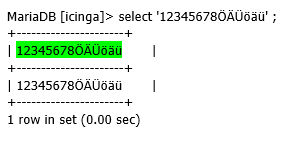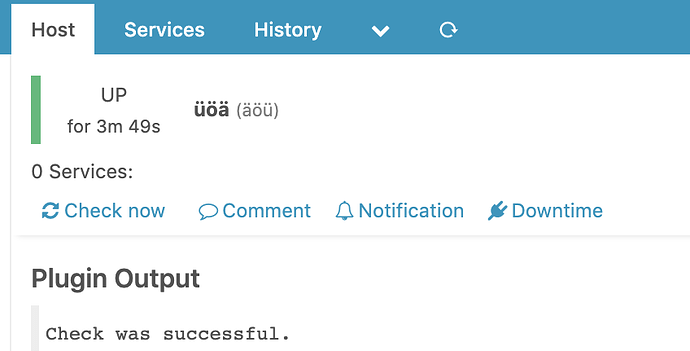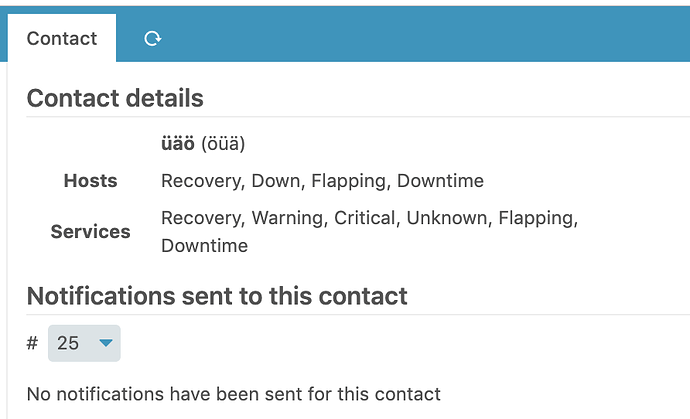Hi,
yes you’re right. I define the users inside the Director (normaly with a AD Import) and deploy it then to Icinga 2.
root@icingaserver:~# curl -k -s -u director:password 'https://localhost:5665/v1/objects/users/test2'
{"results":[{"attrs":{"__name":"test2","active":true,"display_name":"äüö","email":"test@ekom21.de","enable_notifications":true,"groups":["Icinga2-Benutzer"],"ha_mode":0.0,"last_notification":0.0,"name":"test2","original_attributes":null,"package":"director","pager":"","paused":false,"period":"","source_location":{"first_column":1.0,"first_line":7742.0,"last_column":19.0,"last_line":7742.0,"path":"/var/lib/icinga2/api/packages/director/153794df-047a-4d01-92e5-679a6c7efba1/zones.d/master/users.conf"},"states":null,"templates":["test2","Icinga2-Benutzer"],"type":"User","types":null,"vars":null,"version":0.0,"zone":"master"},"joins":{},"meta":{},"name":"test2","type":"User"}]}
root@icingaserver:~# mysql -u icinga -ppassword icinga -e "SHOW VARIABLES WHERE Variable_name LIKE 'character\_set\_%' OR Variable_name LIKE 'collation%';"
+--------------------------+--------------------+
| Variable_name | Value |
+--------------------------+--------------------+
| character_set_client | utf8mb4 |
| character_set_connection | utf8mb4 |
| character_set_database | utf8mb4 |
| character_set_filesystem | binary |
| character_set_results | utf8mb4 |
| character_set_server | utf8mb4 |
| character_set_system | utf8 |
| collation_connection | utf8mb4_general_ci |
| collation_database | utf8mb4_german2_ci |
| collation_server | utf8mb4_general_ci |
+--------------------------+--------------------+
root@icingaserver:~# cat /etc/mysql/mariadb.conf.d/50-mysql-clients.cnf
#
# These groups are read by MariaDB command-line tools
# Use it for options that affect only one utility
#
[mysql]
# Default is Latin1, if you need UTF-8 set this (also in server section)
default-character-set = utf8mb4
[mysql_upgrade]
[mysqladmin]
[mysqlbinlog]
[mysqlcheck]
[mysqldump]
[mysqlimport]
[mysqlshow]
[mysqlslap]
Setup of the mysql-server is everything default and like in the icinga2 documentation https://icinga.com/docs/icinga2/latest/doc/02-getting-started/
Distribution is Debian GNU/Linux 9 (stretch) (9.9).
More details about the setup I maybe not have, it’s a really simple setup with only one server (planned as test-setup, now partially used for production).
Kind regards,
Alicia
